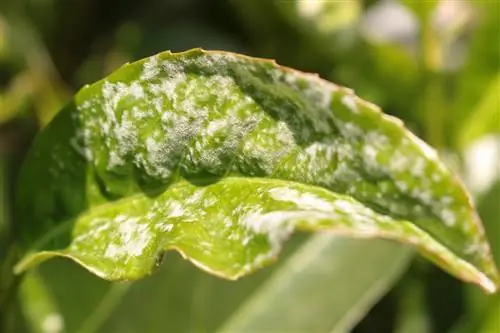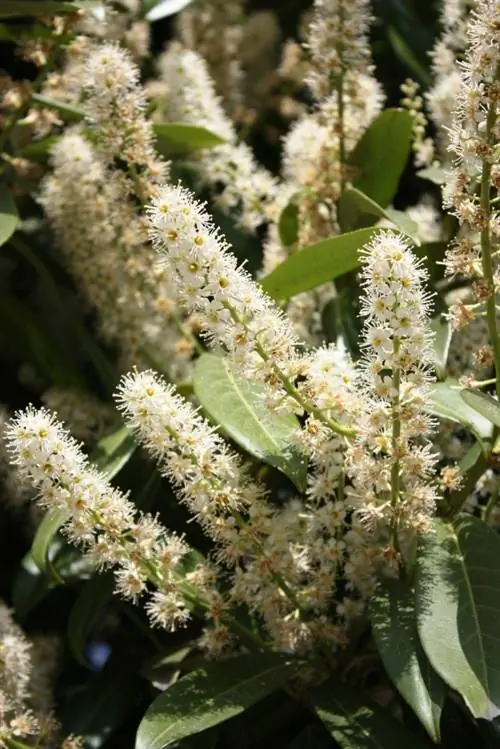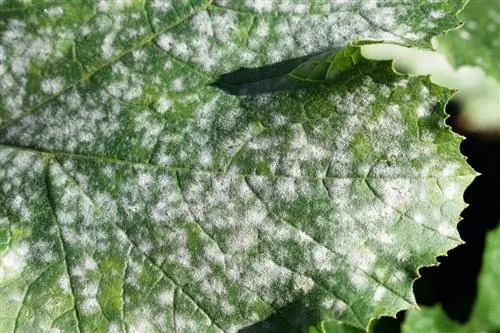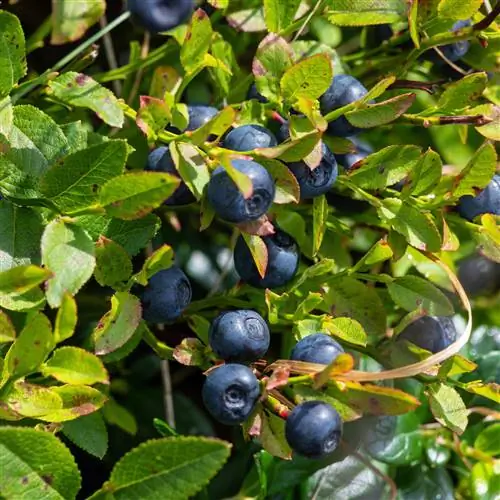- Author admin leonars@hobbygardeners.com.
- Public 2023-12-16 16:46.
- Last modified 2025-01-23 11:19.
Plants need nutrients for growth, flower formation and fruit growth. As an important component of chlorophyll, nitrogen is an important element for photosynthesis. This means that nitrogen is also part of the metabolic processes of plants.
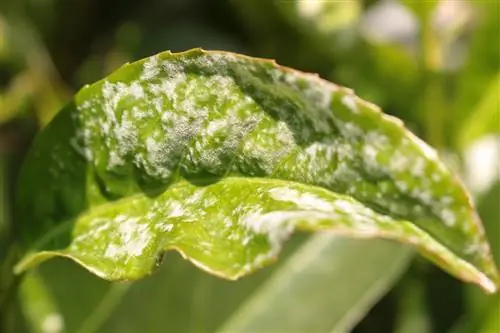
Why does nitrogen promote powdery mildew infestation?
Nitrogen can quickly lead to over-fertilization and causeexcessive growth of the plant. This weakens the cells and makes them more susceptible to diseases such as fungal infections. The plants are sensitive to powdery mildew and downy mildew
How does nitrogen work on plants?
Nitrogen causes the absorption ofProtein into the cell structure Plants cannot stop nitrogen absorption and therefore protein production. This causes the cells to become overfed and soften. Pests and pathogens such as mildew fungi can more easily penetrate the weakened cells. Over-fertilized plants are the ideal food source for mildew fungi because the fungi themselves cannot produce protein.
How do I avoid over-fertilization with nitrogen?
With needs-based fertilization, the plants areonly fertilized in the growth phase This applies from spring to summer. As a hobby gardener, you should avoid mineral fertilizers. It is better to use organic options for nutrient supply such as compost, horn shavings, cow and horse manure, nettle manure or green manure. With these fertilizers, the nutrients are made available to your plants more slowly and evenly.
Tip
Reverse over-fertilization
If you have accidentally over-fertilized your soil and your plants are starting to show signs, you should react quickly. Water the soil thoroughly. Additionally, mulch the soil with quickly decomposing material such as grass clippings. During the decomposition process, nitrogen is consumed and removed from the soil.

